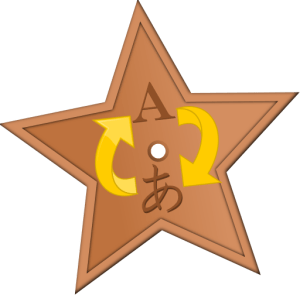English Wikipedia has more than 25,000 medical articles, which receive approximately 200 million page views a month[1]. The encyclopedia is one of the foremost health care resources in the world, used by the lay public as well as professionals. Surveys have found that between 50 and 100 percent of physicians use Wikipedia in their clinical practice[2][3], and Wikipedia is consistently at the top of Google web searches for medical terms[4].

Wikipedia’s Medicine Translation Task Force is an initiative established in late 2011 to make sure that the content readers are finding is accurate, unbiased, and accessible. As part of this endeavor, the task force is taking 80 core medical articles–articles like cancer, malaria, HIV/AIDS, and tuberculosis–and improving their quality to a good article or featured article status through a process of peer review by task force participants. Though 80 might not seem like much, these articles are very popular, with over 10 million page views per month[5]. Eventually they hope to have these articles formally peer reviewed, published in the journal Open Medicine, PLoS Medicine, or the Journal of Medical Internet Research, and then ultimately indexed in PubMed[6]. The first article is already in the publication process.
The ultimate goal is to provide health information for every person on the planet in the language of their choice. One of the biggest challenges has been reaching out to the often ignored non-English demographic.
“The only viable platform to get health care information out to the whole world is Wikipedia,” said Dr. James Heilman, an editor and English Wikipedia administrator (Jmh649). Heilman, or “Doc James” as many people refer to him, is the founder of the task force. “I asked myself, ‘How can I get high-quality health care information to everyone in the world?'”
A plan developed to take the improved English Wikipedia articles and translate them into the multiple language versions of Wikipedia. Heilman sought out Translators Without Borders (TWB) a non-profit whose mission is to provide humanitarian translation for other non-profits and NGOs worldwide. The initial goal of TWB’s inolvement is to take the 80 peer-reviewed, core articles and translate them into 80 different languages.
Lori Thicke, co-founder of Translators Without Borders, said partnering with Wikipedia would help “bridge the language last mile for access to high quality health information.”
“Wikipedia has the reach to make a major impact on public health in the developing world. Because of language and physical barriers, the health information we take for granted is locked away from the people who need it most — those with the deadly combination of relentless poverty, a high disease burden and grossly inadequate health resources,” said Thicke. “Yet these people are connected. Increasingly their phones are Internet-enabled and they are ready to move into the digital age. We need to help them.”
While the task force aspires to translate content, another goal is to do so at a level of complexity that is accessible for every reader. Heilman and Thicke enlisted the support of Content Rules, a company that specializes in professional simplification of technical content. Although they typically focus on information technology, Content Rules offered to take on simplifying the entire first batch of 80 medical articles (13 have been simplified as of this writing).
“When people can actually read medical information and understand it, it can save lives,” said Content Rules CEO Val Swisher, who put a call out for pro-bono editors to work on the Wikipedia medical articles in late 2011. “The response I got from my network was so overwhelming that I literally had to turn people away.”
Swisher explained that although the articles are outside the core area of her company, Heilman is there to review them and Content Rules does have some medical experts on staff. “Our purpose is to take deep medical information and make it understandable,” said Swisher. “So, if we don’t understand it, then we have to rewrite it. And if we do understand once we are done, then we know we’ve been successful.”
Once the simplified articles have been translated, Heilman and the task force members search for Wikipedia editors who can integrate that content into their own language version of Wikipedia. Heilman said he is currently on the lookout for editors from the Dari, Turkish, Polish, and Vietnamese projects, as well as any others who think they can help.
“No one else is attempting to solve the problem of delivering medical information in the other 280 plus languages we work on,” said Heilman. “We need to make sure that when the next billion people come on line — those who don’t speak English, Spanish, or French — that there’s something there for them.”
(You can monitor the progress of the translations here or sign up to become involved here. For further reading, see the Wikipedia Signpost’s coverage of WikiProject Medicine)
Jake Orlowitz (Ocaasi)
- ↑ http://en.wikipedia.org/wiki/Wikipedia:WikiProject_Medicine/Popular_pages
- ↑ Heilman JM, Kemmann E, Bonert M, et al. (2011). “Wikipedia: a key tool for global public health promotion“. J. Med. Internet Res. 13 (1): e14. doi:10.2196/jmir.1589. PMID 21282098.
- ↑ http://diff.wikimedia.org.uk/2012/04/doctors-use-but-dont-rely-totally-on-wikipedia/
- ↑ Laurent, MR; Vickers, TJ (2009 Jul-Aug). “Seeking health information online: does Wikipedia matter?”. Journal of the American Medical Informatics Association : JAMIA 16 (4): 471-9. PMID 19390105.
- ↑ http://en.wikipedia.org/wiki/Wikipedia:WikiProject_Medicine/Translation_task_force/Popular_pages
- ↑ http://en.wikipedia.org/wiki/Wikipedia:WikiProject_Medicine/Collaborative_publication

Can you help us translate this article?
In order for this article to reach as many people as possible we would like your help. Can you translate this article to get the message out?
Start translation